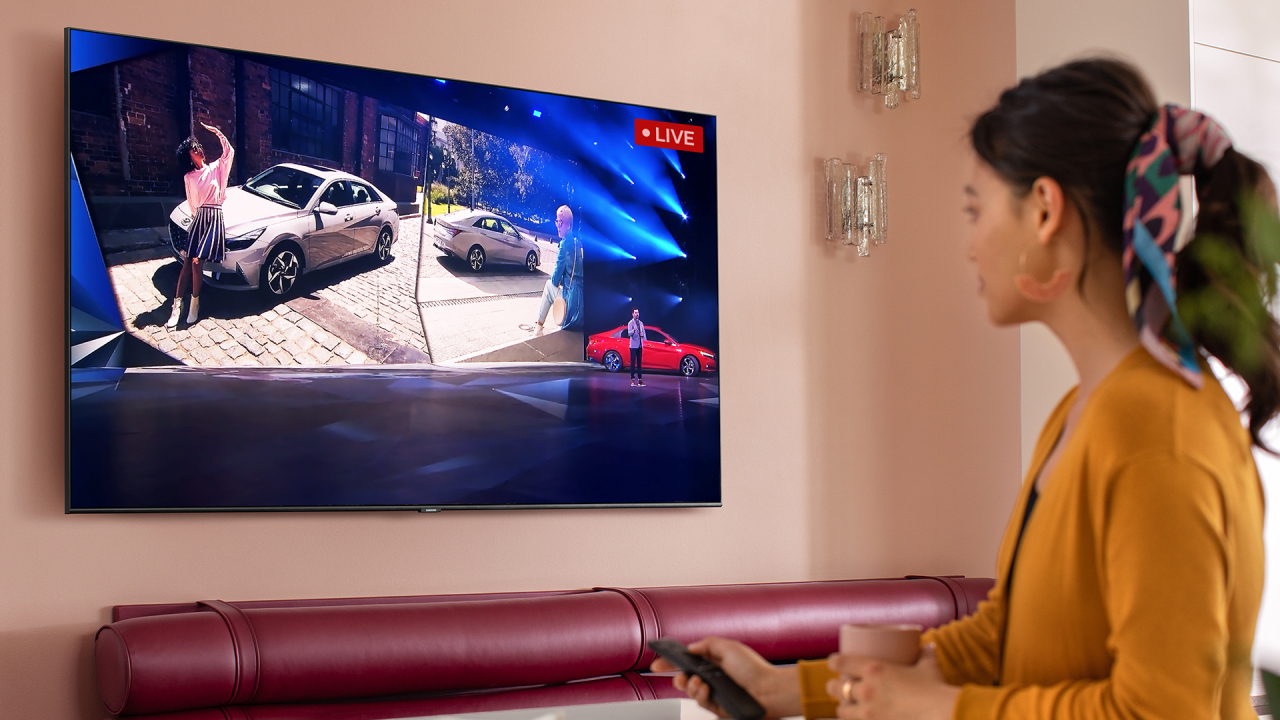Due to the repeated resurgence of COVID-19 and the prolonged market fallout, the contactless business trend has become an inevitable reality even for hardcore manufacturing sectors such as automobiles.
While major carmakers sought to expand online promotion channels for their newly launched vehicles, tire companies focused on providing non-face-to-face callouts for repairs and replacement.
Genesis, the luxury automobile brand from South Korea’s second-largest conglomerate, Hyundai Motor Group, unveiled its second sport utility vehicle, the GV70, online earlier this month.
As its predecessor, the GV80, had enjoyed an extensive launch celebration in January this year, the latest rollout was a watershed moment for the Korean automaker. But taking into account the global coronavirus flare-up and the third wave of infections here, the company chose to change its promotion paradigm, making full use of contactless channels such as YouTube.
Reflecting the aspiring purchasers’ keen interest in the vehicle and the market’s favorable response to contactless communications, the first official GV70 promotion video surpassed 500,000 hits within a week, according to officials.
It was not the first time that the country’s top auto conglomerate had adopted an online format to unveil a new car to the world.
Affiliate Kia Motors held an online show in April to present its renewed flagship SUV, the Sorento. The event was notable for its casual vibe, with peak viewership of 36,000 people.
“There have been some concerns about the new format, but it turned out that viewers may find out more details about the vehicle than they conventionally did in crowded offline events or test drives,” a company official said.
To enhance communications with customers, Hyundai Motor also kicked off Channel Hyundai, a new smart TV-based media channel that provides various kinds of video content, including live videos on newly released cars.
Ssangyong Motor, when it launched its new Tivoli in July, chose the e-commerce channel as its key promotion channel for contactless purchases.
In partnership with 11Street, the carmaker provided the limited-edition Tivoli at a discounted price through the e-commerce platform. Those who purchased discount coupons via 11Street received follow-up calls from nearby showrooms for test-drive reservations and consultations.
Renault Samsung has focused on providing after-sales services that minimize face-to-face contact with clients.
Since March the company has offered a special pickup and delivery system, allowing users to designate a pickup spot without having to meet anyone in person and to receive the car at the desired location after it undergoes maintenance.
It also successfully launched its premium SUV XM3 in March, despite the sudden surge in coronavirus cases here, by swiftly converting its showroom to an online venue and providing special benefits to customers who concluded online purchase deals. Another attraction was the “drive-thru” test-drive program, in which a fully sterilized XM3 would be delivered directly to a trial-ride customer upon request.
In the tire sector, Nexen Tire took the initiative by launching its “Next Level Go” program, a contactless tire replacement service that started off in Greater Seoul. The service has recently been expanded to include cities such as Daegu and Ulsan, officials said.
“The COVID-19 situation has added momentum to the contactless market trend in the automobile industry, which had already been in progress amid the transition to the electric vehicle paradigm,” said an industry official.
By Bae Hyun-jung (
tellme@heraldcorp.com)








![[Today’s K-pop] Blackpink’s Jennie, Lisa invited to Coachella as solo acts](http://res.heraldm.com/phpwas/restmb_idxmake.php?idx=644&simg=/content/image/2024/11/21/20241121050099_0.jpg)